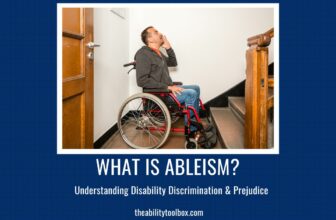
Have you ever felt isolated, unsure of what to do, and without any connection to those around you? Sometimes, the best way to overcome your insecurities and traumatic experiences is through others who are just like you. Group counseling can help you improve your mental health by building relationships with other people going through similar experiences.
But finding effective group counseling isn't always easy. You must find a group that meshes with your personality and lifestyle. Here's everything you need to know about group counseling.
What Is Group Counseling?
Group counseling is a form of therapy that involves more than one person. In group counseling, you will meet with a therapist and others in similar situations. Group counseling aims to help you improve your mental health by learning new coping strategies and building relationships with other people going through similar experiences.
Group counseling can be helpful for many different types of issues, including:
- Depression/anxiety
- Eating disorders/body image concerns
- Substance abuse problems
Group counseling is also suitable for ADHD-like developmental disorders and PTSD. For instance, after a recent shooting event in The Covenant School, Nashville, where 6 lives were lost, therapists recommend that group counseling and summer counseling programs can help students recover from the trauma.
How Group Counseling Works
Group counseling is a type of therapy that involves a group of people with similar issues. They meet with a counselor to talk about their problems and learn new skills, but they can also help each other with their issues. Group members support each other, which can be especially helpful for those struggling with mental health issues or depression.
Many people feel more comfortable opening up in front of others than speaking one-on-one with their therapist because they don't have to worry about being judged or criticized by their peers in the group setting.
Participants in group settings need to understand that everyone else has different experiences, so there's no need for anyone's opinion on something like depression or anxiety disorder to be more valid than another person's point of view simply because he/she has experienced it first hand rather than just reading about it online.
Group counseling allows people to talk about things, which makes them feel less ashamed of any event and openly communicate about it. Bethany Lawson, a member of a band called Plastic Angels, experienced sexual abuse as a child. Per the reports from NewsChannel5 Nashville, she is now working with a non-profit organization to offer free therapy to sexual abuse survivors.
Is Group Counseling Effective?
Group counseling can be a potent tool for growth and for changing one's perspective on life. According to a 2023 study published in American Psychologist, meeting the unmet psychological needs of mental health patients through group therapy could save $5.6 billion while addressing the larger needs of society.
Finding and Joining a Group Counseling Program for Trauma
To find the right group for you, consider these factors:
- Is it convenient? Does the location of the group make sense for your schedule and commute? If not, can you take public transportation or drive there instead of a cab or Uber?
- Is it affordable? Are there scholarships available that would make attending this program more affordable than others in your area?
- Is it flexible with scheduling changes? Can someone join mid-session without paying an additional fee for missed sessions? Will staff members understand if something comes up with another appointment/appointment time change during an ongoing session?
- Does this group seem like they would accept my situation, or do I have any reservations about being honest about what's going on in my life so far as trauma goes?
Location convenience is vital because you don't want to travel a lot with your disturbed mind. So choose a local therapy firm or participate in a local group. For example, if you are in Nashville and have faced a deadly car accident, it is best to go with trauma therapy in Nashville. Choosing a firm with good services and testimonials is one of the best ways to find out about a firm's services.
Client testimonials can give you a clear idea of what you can expect from trauma therapy in Nashville. Many people provide reviews for companies or therapy firms based on their experiences with them. A testimonial for Fair Park Counseling, a counseling firm operating in Nashville, states how the company helped the person with compassion and empathy. The reviewer also mentioned the benefits and changes he/she witnessed in life after counseling.
The Benefits of Group Counseling for Trauma
Many people experience trauma at some point in their lives, and the experience can lead to problems like Post-Traumatic Stress Disorder (PTSD). Data shows that at least 223.4 million Americans have experienced trauma.
Group counseling provides a unique opportunity for trauma survivors to find support and healing in an environment where they can openly share their experiences, learn from others, and discover what being part of a community means.
This type of therapy is beneficial for individuals who may feel isolated after experiencing trauma because it allows them to connect with others with similar experiences.
The benefits of group counseling include the following:
Support and Validation
The power of connection is the feeling of support and validation from being with other people experiencing similar things. This can be especially important in group counseling because you may not have anyone else who understands your situation.
Group members will listen and understand when others share their experiences. They'll also advise on how to handle certain situations.
Group members often feel they can't talk about what happened because no one else will understand or believe their story. Still, when everyone shares their story, it becomes clear that everyone has gone through something traumatic at some point, and that's OK.
Diversity of Perspectives
Group counseling is a great way to learn from others and gain perspective on your experiences. There are many different ways that group members can help each other through trauma, including asking questions, listening attentively, and understanding the perspectives of others.
Asking questions is an important part of connecting with others in group counseling. Questions are tools for understanding what someone else has been through or how they feel about their experience. If you're curious about something someone said or did during a session, ask them about it.
Coping With Traumatic Events and Experiences
The first step to coping with trauma is recognizing it's happening. Some people may not even realize that they've experienced a traumatic event or might not know the symptoms of being traumatized by an experience. If not treated, the situation can get worse, and lead to a lifetime of trauma.
A study from the Jama Network Journal says at least 6.1% of US adults struggle with PTSD for a lifetime, as they do not even know they have PTSD. If you think you might have PTSD, take a look at our list of signs and symptoms below:
- You feel numb or disconnected from others and yourself
- You have trouble sleeping or concentrating
- Your heart pounds when certain things happen
- You feel irritable, depressed, anxious, and/or scared often
Conclusion
We hope you're encouraged by the many ways group counseling can help you cope with trauma. It's important to remember that there is no one-size-fits-all approach to healing from traumatic experiences, and every person will have a unique journey.
However, this type of therapy can provide a vital support network for people struggling with similar issues, and even those who don't think they need it might be surprised by how much they benefit from connecting with others who share similar experiences.
Coffee junkie. Spoonie. Writer about all things chronic illness and mental health. Friend of animals everywhere.
Dr. Wilson graduated from Rosalind Franklin University of Medicine and Science and completed her residency in Internal Medicine at Advocate Good Shepherd Hospital in Barrington, IL. Dr. Wilson specializes in providing culturally competent and trauma-informed care to patients with physical disabilities. In addition to her private practice, she works as a science communicator, teaching health literacy to middle school and high school students in her local school district.









